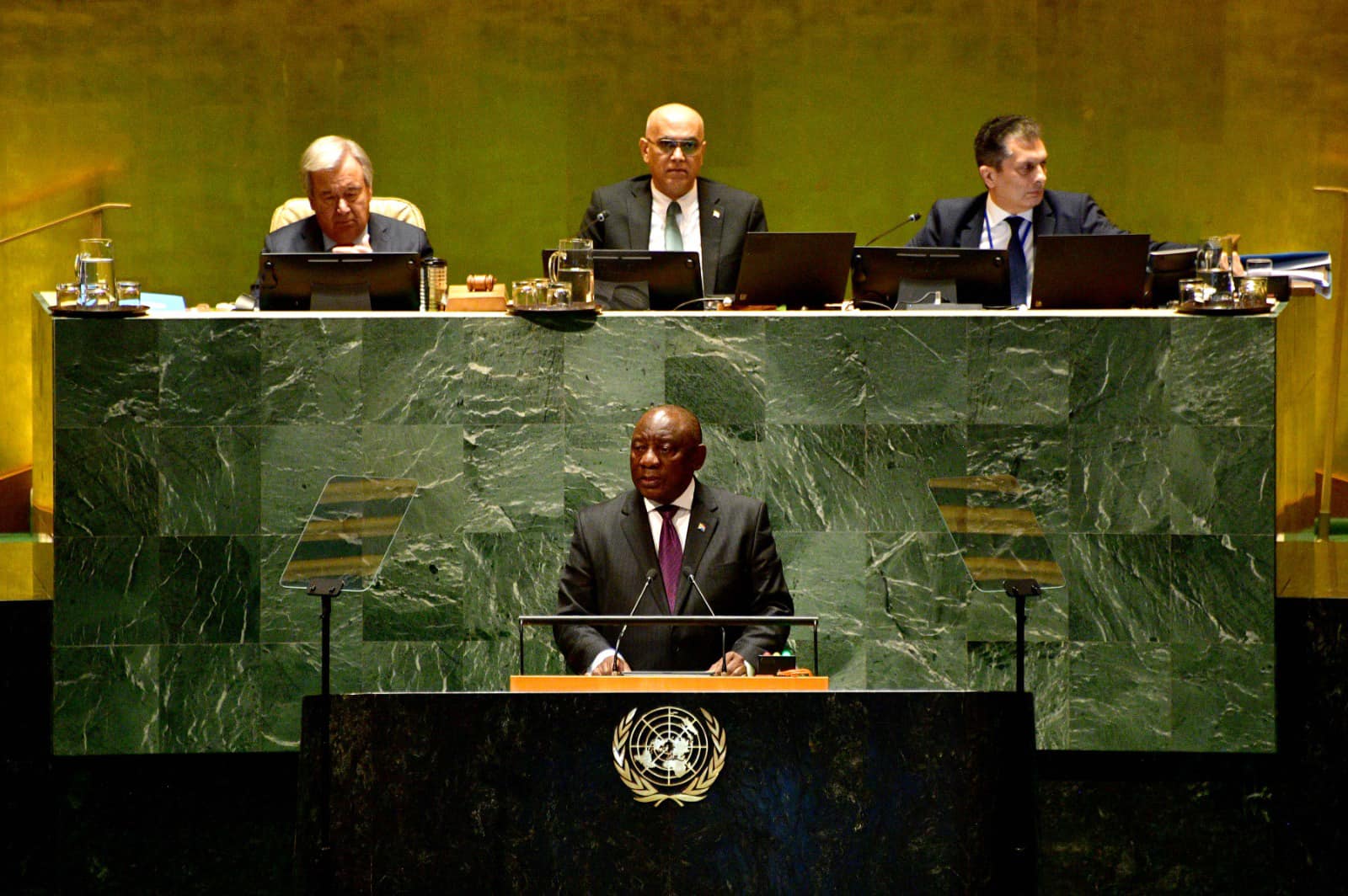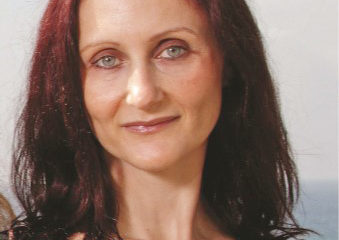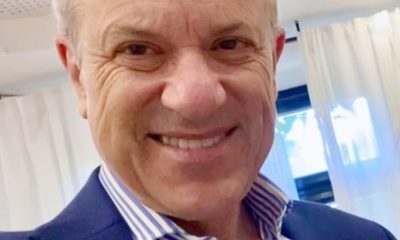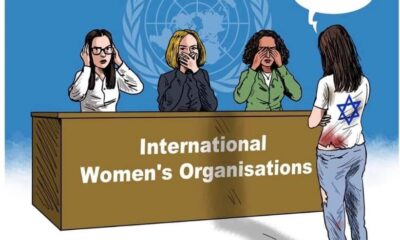
News

What Ramaphosa didn’t say at UN speaks volumes
Every September, speeches by heads of state at the United Nations (UN) General Assembly’s general debate are meant to take less than 15 minutes. Although often honoured in the breach, part of the art is knowing what to leave out.
South African President Cyril Ramaphosa used his address on 19 September in New York to traipse through well-worn trails of the country’s foreign policy. It’s what he didn’t say that’s most interesting. And, of course, there was some Israel-bashing.
“We must work for peace in the Middle East,” he said. “For as long as the land of the Palestinians remains occupied, for as long as their rights are ignored and their dignity denied, such peace will remain elusive. The actions of the government of Israel have imperilled the possibility of a viable two-state solution. The principles of the UN Charter on territorial integrity and on the prohibition on the annexation of land through the use of force must be applied in this situation.”
This is a typically one-sided view of the conflict, heaping all the blame on Israel, with no acknowledgement of Palestinian terror attacks, indiscriminate rocket fire into Israel, and diplomatic stratagems. It ignores other conflicts in the region. This simplification of the complexities is myopic.
Looking at the bigger international picture, Ramaphosa said, “[M]uch of humanity is confronted by war and conflict, by want and hunger, by disease and environmental disaster. Solidarity and trust between states is being eroded. Inequality, poverty, and unemployment are deepening.” He urged the international community to address these problems, or the Sustainable Development Goals would be unlikely to be fulfilled by 2030, and the climate crisis would worsen. He succinctly captured these issues.
“Democratic South Africa has committed itself to the promotion of human rights, human dignity, justice, democracy, and adherence to international law. From the experience of our own journey from apartheid to democracy, we value the importance of engaging all parties to conflicts to achieve peaceful, just, and enduring resolutions. It’s these principles that inform South Africa’s participation in the African Peace Initiative, which seeks a peaceful resolution of the conflict between Russia and Ukraine. In this conflict, as in all conflicts, we have insisted that the UN Charter’s principle of respect for the territorial integrity of every country should be upheld.”
Language matters. Here, Ramaphosa describes Russia’s invasion of a sovereign neighbour as a “conflict” between two states. But there would be no conflict without the invasion. And in spite of emphasising the importance of territorial integrity, South Africa once again refrains from condemning Russian aggression. At least he avoided calling the invasion a “special military operation”, the euphemistic phrase preferred by Moscow.
Later, Ramaphosa said, “It’s a grave indictment of this international community that we can spend so much on war, but we cannot support action that needs to be taken to meet the most basic needs of billions of people.” This was a thinly veiled swipe at the West for bolstering Ukraine.
“As a global community,” Ramaphosa said, “we should be concerned by recent incidents of unconstitutional changes of government in some parts of Africa.” He listed a litany of African conflicts where the world should support the African Union’s peace efforts.
Then we had the usual list of other issues that South Africa raises: self-determination for Western Sahara (occupied by Morocco); and the lifting of sanctions against Cuba and Zimbabwe, without any comment about human rights abuses, the rule of law, and poor governance in these countries.
He also urged developed countries to honour their pledge to provide $100 billion (R1.9 trillion) annually to developing countries to adapt to climate change and tackle debt and debt distress.
The president called for UN reform. “We require institutions that are inclusive, representative, democratic, and which advance the interests of all nations. We require a renewed commitment to multilateralism based on clear rules and supported by effective institutions. This is the moment to proceed with the reform of the United Nations Security Council, to give meaning to the principle of the sovereign equality of nations, and to enable the council to respond more effectively to current geopolitical realities. We are pleased that the Common African Position on the reform of the Security Council is increasingly enjoying wide support.”
Known as the “Ezulwini Consensus” from 2005, the Common African Position calls for “at least two permanent seats, including veto power, and five non-permanent seats on the Security Council”. Did he miss an opportunity to push for South Africa to have one of those seats? Maybe, but this would have been seen in Africa as breaking ranks. It would be a game of musical chairs between Egypt, Nigeria, and South Africa – three candidates for two seats. The five permanent members have shown little appetite for reform though.
“As the nations gathered here in this General Assembly, let us demonstrate that we have both the will and the resolve to secure a peaceful, prosperous, and sustainable future for our world and for the generations that will follow,” Ramaphosa said. I can’t argue with that.
- Steven Gruzd is an analyst at the South African Institute of International Affairs in Johannesburg. He writes in his personal capacity.
- Photo credit: South African Government Facebook page











Gary Selikow
September 21, 2023 at 1:32 pm
He also called for sanctions on ZANU PF to be lifted, He sided effectively once again with tyranny, terror and evil, behind his usual facade of slick, nice words.